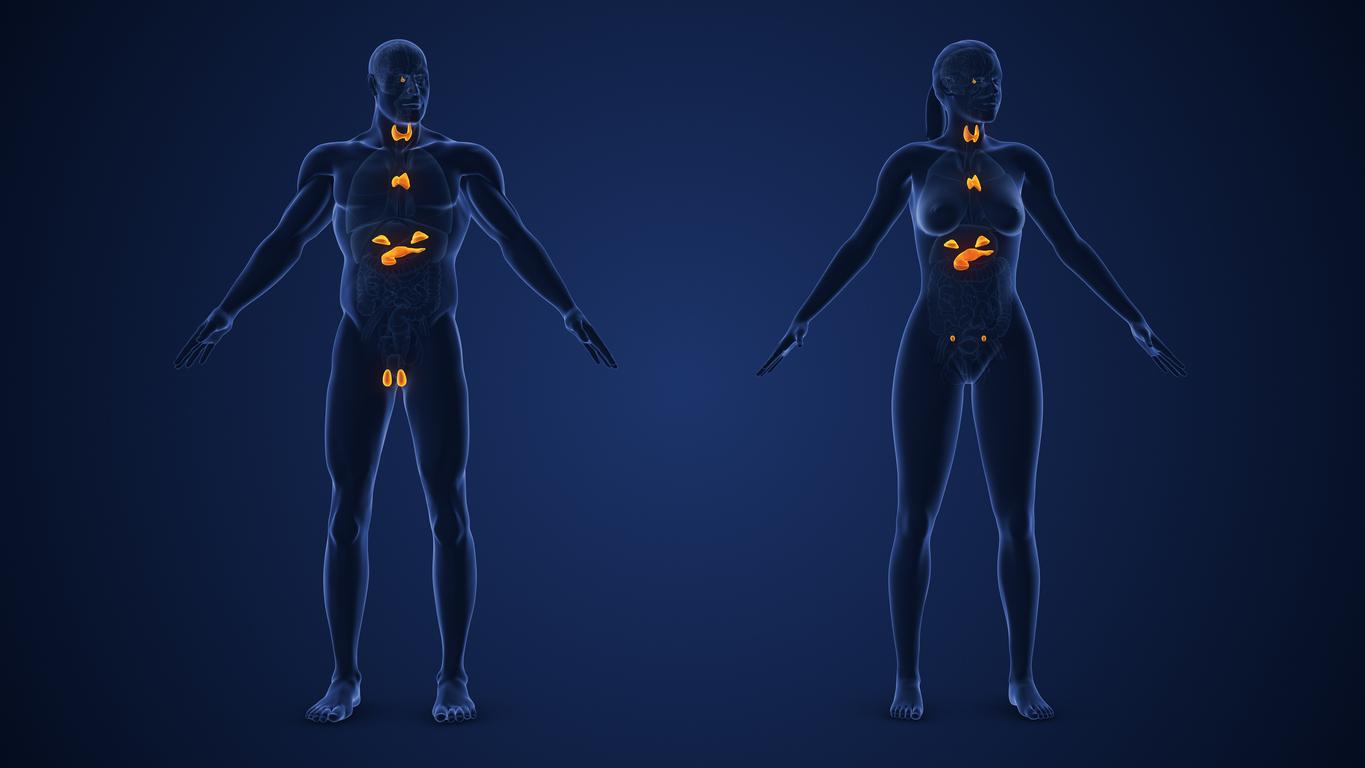For many of us, sex education in school focused narrowly on reproductive anatomy, puberty changes, and basic contraception. However, it often overlooked deeper conversations about what hormones are, how they work, and their lifelong role in shaping our health, identity, and well-being.
One of the most misunderstood and under-discussed hormones is testosterone. Typically associated only with masculinity, testosterone actually plays critical roles in both men and women.

As adults, understanding this hormone can help us better navigate concerns about mood, energy, sex drive and testosterone, bone health, and more. It’s time to expand the conversation beyond what we learned in school.
What Are Hormones, and What Does the Endocrine System Do?
Hormones are chemical messengers produced by glands in the endocrine system. The endocrine system is the network responsible for regulating growth, metabolism, mood, reproduction, and more.

Hormones like testosterone travel through the bloodstream, binding to receptors in various tissues and triggering essential biological processes.
Testosterone, in particular, influences bone density, muscle mass, red blood cell production, fat distribution, and mood regulation. Despite common myths, it’s not just a “male hormone.” Women also produce testosterone, primarily in the ovaries and adrenal glands, where it supports libido, bone health, and cognitive function.
How Does Testosterone Affect the Body?
Testosterone production begins before birth, surging during puberty to drive the development of secondary sex characteristics, such as facial hair and a deeper voice in males. However, its effects don’t stop there. In adults, testosterone contributes to:
- Maintaining bone density
- Supporting muscle mass and strength
- Promoting fat distribution
- Influencing mood and cognitive abilities
- Fueling sexual desire and performance
Research shows testosterone helps regulate key aspects of our physical and emotional health throughout life.
So, how does testosterone affect the body? In more ways than most of us were taught.
The Link Between Testosterone and Sex Drive

One area where testosterone’s role is clear is in sexual health. Low levels can contribute to reduced libido, arousal difficulties, and diminished sexual satisfaction. For men wondering why their sex drive is low, low testosterone is one possible explanation.
In women, testosterone also plays a part in desire, arousal, and sexual satisfaction. Yet this connection is rarely discussed, leaving many unaware of hormone-related causes of sexual concerns.
What Are Normal Levels of Testosterone?
Normal testosterone levels vary based on age, sex, and individual factors. Generally:
Men: Total testosterone levels are typically considered normal between 300–1,000 ng/dL.
Women: Levels are much lower, with total testosterone ranging roughly from 15–70 ng/dL.
However, interpreting these numbers isn’t always straightforward. Factors like time of day (testosterone levels peak in the morning), lab variability, and individual differences can complicate diagnosis.
Just because a level is technically within the "normal" range doesn’t mean it’s optimal for every individual. For example, a man with testosterone slightly above 300 ng/dL may still experience symptoms like low libido, fatigue, or mood changes, indicating that those levels may not be sufficient for his personal hormonal needs.
This variability underscores the importance of individualized hormone assessment, not one-size-fits-all charts.
Why Adults Need Hormone Education

As adults, we’re managing complex health concerns that our childhood sex ed classes never addressed, including:
- Unexplained fatigue or mood changes
- Midlife weight gain or loss of muscle mass
- Sexual dysfunction
- Bone health concerns
Many of these can relate to hormone fluctuations, including testosterone. A 2015 review article published in Reviews in Urology notes that testosterone impacts not only sexual function but also mental health, bone density, cardiovascular health, and body composition.
Understanding this hormone gives adults tools to ask the right questions, seek proper evaluation, and consider appropriate therapies when needed.
Rethinking Testosterone for All Genders
It’s a myth that testosterone matters only for men. Women produce and need testosterone, too. In fact, research shows its conversion to estrogen helps maintain bone health and possibly supports mood and cognition in women.
Yet, because traditional sex ed and public discourse have overlooked testosterone’s role beyond reproduction, many adults may not realize that hormone balance could be affecting their well-being.
Why This Knowledge Matters Now
- Health advocacy: Understanding hormones helps you advocate for comprehensive health assessments, especially if you’re experiencing unexplained symptoms.
- Navigating care: It allows you to have informed discussions with healthcare providers about options like testosterone replacement therapy, when appropriate.
- Challenging myths: It helps break down outdated stereotypes that oversimplify the complex interplay between hormones, identity, and health.
In a world where people are living longer and striving for a better quality of life, this knowledge isn’t optional; it’s empowering.
Keep Testosterone In the Conversation
Sex ed shouldn’t stop at adolescence. Our hormone health evolves throughout life, and adults deserve better information about how hormones like testosterone shape our bodies, minds, and experiences.
If you’re curious about your hormone health, ask your provider about testing, especially if you’re dealing with concerns like low libido, fatigue, or unexplained mood changes.
You can also click here to order our At-home Men’s Health Panel to test your levels from home.
Want to stay informed about the latest in men’s health and testosterone? Sign up for our newsletter today to get insights sent straight to your inbox.
.svg)


.svg)






